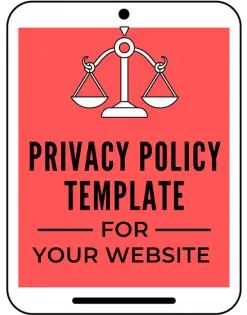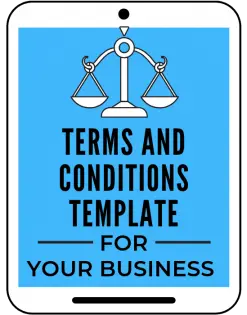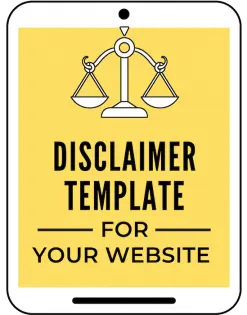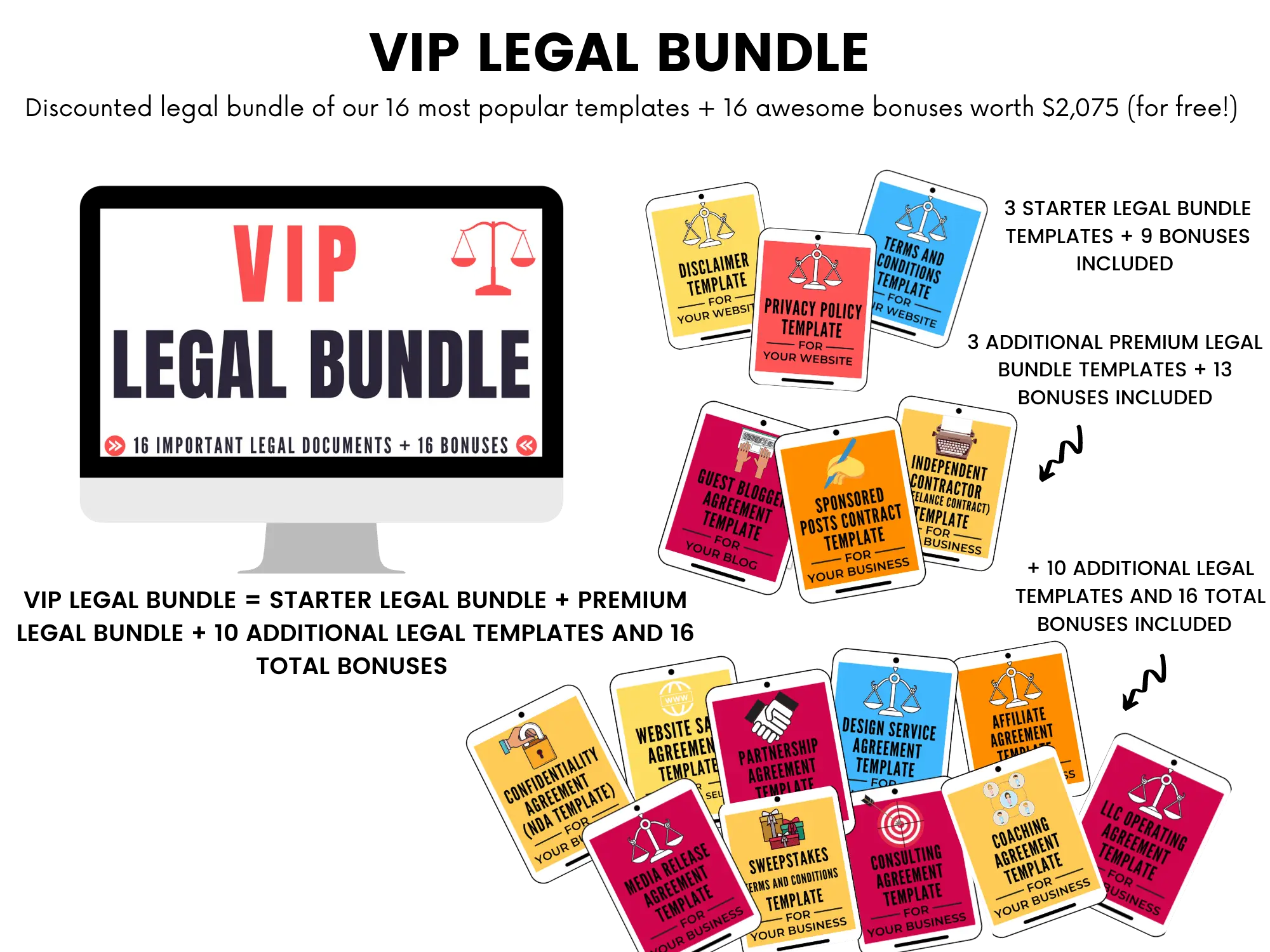Website Templates
quiz: DIY or Designer?
quiz: Which website platform?
Resources
BLOG
SERVICES
aBOUT
Explore
bUSINESS bUILDERS
website templates
Shop
APPLY TO WORK WITH ME
cONTACT
HIRE ME
Get Started
More about me
I am passionate about helping small business owners, creatives and online entrepreneurs stand out and sell more without the stress!
Meet Maureen
Are you blogging legally: Legal pages you need on your website and blog
There are a lot of things to think about when you are starting a website & blog.
- What website platform is best for me?
- Do I need to pay for hosting?
- How do I set up my blog?
- What will I blog about?
But there’s one really important question that rarely crosses an online entrepreneur’s mind in the beginning …
How do I make sure that my website is legal & that I am blogging legally?
Am I right?
I know I definitely didn’t think about whether my website & blog was legal when I was first starting out. Heck, I didn’t even know this was something I needed to concern myself with until I started working with my first coach. This was a BIG mistake that could have cost me thousands of dollars!
Whether you had no idea that you needed to address this or you have known and have just been putting it off, let me assure you, you want to make sure that making your website legal & blogging legally is at the top of your to-do list.
In this article, I am explaining how to legally protect your website & blog easily & quickly with 3 legal pages you must have on your site from the very start. I am covering:
- What these legal pages are
- Where to get them
- How to get them on your site today in less than an hour!
Follow my super simple process so that you can quickly do this and move on to doing what you do best with the peace of mind of being protected legally.
Disclaimer: I am not a lawyer. The information in this post is for informational purposes and does not constitute legal advice in any way. I am not liable for any damages resulting from using the information in this article. Please consult a lawyer for advice on your unique situation.
This post may contain affiliate links. Please see my disclosure page for more info
Check out the legal templates I use, love & recommend to all my students & clients here
How can I legally protect my website and blog?
There are a lot of fun aspects to starting a website and blog, but figuring out the legalities generally isn’t considered enjoyable, so I want to make this as simple and painless as possible.
There are a minimum of 3 legal pages that you must have on your site to help you legally protect your business.

What legal pages do I need on my website?
At a minimum, the three legal pages that you want to make sure you have on your site are:
- Privacy Policy
- Terms and conditions
- Disclaimer
Blogging Legally: Privacy Policy Legal Page
A privacy policy page states how a company or website collects, handles, and processes the data of its customers and visitors. As a result, this is a page that is required by law on your site and explains how the information you collect is used.
This page will help protect you legally and provide your audience with clear details on exactly how you use their information.
Since a website can be viewed by people all over the world, you need to make sure it complies with laws across the world. A privacy policy is also needed to comply with the General Data Protection Regulation (GDPR), which is a European Union law that helps people know how their information is being used.
There have also been new changes to the privacy laws in 2023. These include things like the California Privacy Rights Act (CPRA) and the Virginia Consumer Data Protection Act (VCDPA). There are also state privacy laws from Colorado, Utah, Connecticut, and others that are coming later this year.
To make sure your Privacy Policy includes these and that you get any future updates (for free when you have these templates) check out the legal template bundle that I purchased, love, and recommend to all my clients & students.)
Some things that should be included in your Privacy Policy:
- Children’s Privacy
- How information is collected via cookies, contact forms, social media shares, web beacons and pixels
- The use of third-party links
- Visitor rights
- How to opt out of communication with you and third parties
- Your contact information for further questions
Blogging Legally: Terms and Conditions
Your Terms and Conditions page or Terms of Use/Service are your website rules. Hence, this page helps explain what is permitted on your site and what is prohibited. It forms a legally binding contract between you and your website user.
Some things that should be included in a Terms and Conditions template:
- Mention of your privacy policy and disclaimer
- Mandatory arbitration and governing law
- Intellectual property
- Lawful use of website
- Third-party links
- Refund and warranty policies
- Reservation of your rights
Blogging Legally: Disclaimer
Do I need a disclaimer on my blog? Yes definitely!
Because you don’t want to be held legally responsible for anything you publish on your blog, this page helps protect you from lawsuits.
This page is where you “disclaim” or “deny” liability for the content you publish on your blog and warns your visitors that they are solely responsible for any kind of actions that they take, as a result of the information published on your blog.
Some things that should be included in a Disclaimer template:
- General disclaimer
- Affiliate/Third Party links disclosure and disclaimer
- Earning’s disclaimer
- testimonials disclaimers
- Sponsored posts/reviews disclaimer
- Fair use disclaimer
- No warranties
- Limitation of liability
- Indemnification
How to create legal pages for your website & blog
Okay, now that you know what legal pages you need on your site and what each legal template should include, let’s discuss how to create these pages.
The two most frequent questions I get asked about creating legal templates are: Are legal templates free? and If not, how much do legal templates cost?
There are 3 ways that you can create these pages. 2 of which are paid and one of which is free.
1. Hire a lawyer
You can work with a lawyer to create customized legal pages for your specific business. Albeit, this will be your most expensive option, but if you want/need legal documents highly customized to your specific business and have the funds to do so, this may be the best option for you.
2. Paid Legal Templates
*RECOMMENDED
You can buy legal templates written by a lawyer for your blog. Legal templates written by a trusted lawyer are the perfect option for those who want to make sure that their website is legal and that they are blogging legally without spending a ton of money or using free ones that don’t always cover the specifics or updates that must be included. This is what I did.
Accordingly, I spent a ton of time researching legal templates and this is the legal bundle template I ended up purchasing for my website & blog. It was the most comprehensive and by far the best price out there for what you get. These templates are used by some of the biggest bloggers and online entrepreneurs and I confidently recommend these legal bundles to all my students & clients.
To see the different packages, click on this link, then click the Give Me My Bundle link at the top to see the different packages and pricing.
There is also a Premium Legal Bundle and VIP Bundle as well:
3. Legal Pages – Free
Finally, there are lots of sites on the Internet that offer free legal templates. If you are on a tight budget you can always start here. However, I personally do not recommend them.
You typically get what you pay for and in my opinion, most of the free legal templates lack the specifics you need on your legal pages. Investing in legal templates from an actual lawyer can save you thousands of dollars if not more and legal headaches down the road.
Having said that if you want to explore your free options, here are a few to help you on your search:
Again, I am not a lawyer, so I can’t advise you on what to do or how good these free ones are, but I highly suggest investing in a professional service like the paid legal template bundle as soon as you are able.
How to add legal templates to your website
For a tutorial on how to add legal templates to your WordPress website, check out the video above starting at 10:37.
For a tutorial on how to add legal templates to your Showit website, check out the video above starting at 11:54.
Time to take Action
You are working hard to grow your business, so make sure that you are taking the steps to protect it and yourself now.
I have researched A LOT of paid legal templates and these have been the best price for the quality and comprehensive templates you get. This fairly small investment into your business is, in my opinion, 100% worth it for the peace of mind you get when it comes to knowing your website & blog is legal.
Do you have legal pages yet? If not, did this post help you understand the need to make your website legal? Let me know in the comments below. I’d love to hear from you!
Business Templates & Trainings to help you grow faster:
Blog to Business Planner – Create a plan to turn your blog into a money-making business in 2022 & beyond:
Digital Blog Post Templates – Write blog posts faster and easier with a click of a button! Requires ability to add WordPress plugin (Must be on the Showit Advanced plan or WordPress to access this)
Digital Product Power Pack – Create your first or next digital product without having to worry about design!
Content Creation Blueprint – The secrets to creating content that grows your following, saves you time and leads to sales.
ConvertKit Workshop: Step-by-step training to create and build an email list so that you can build a relationship with your readers and start making money.
Private Showit Website Coaching – Apply here
Copyright © 2024 Website by Maureen, Creating An Impact, LLC All rights reserved
Copyright © 2024
Website by Maureen, Creating An Impact, LLC All rights reserved
Disclaimer
Terms & Conditions |
Privacy Policy |






This is such a great comprehensive post. Many bloggers forget about the legal side of their business or just don’t think that they might need to address such issues, until they actually do! So it’s best to be prepared.
Thank you Martha! You’re right, a lot of bloggers don’t think of the legal side of blogging until something happens. Glad you enjoyed the post 🙂